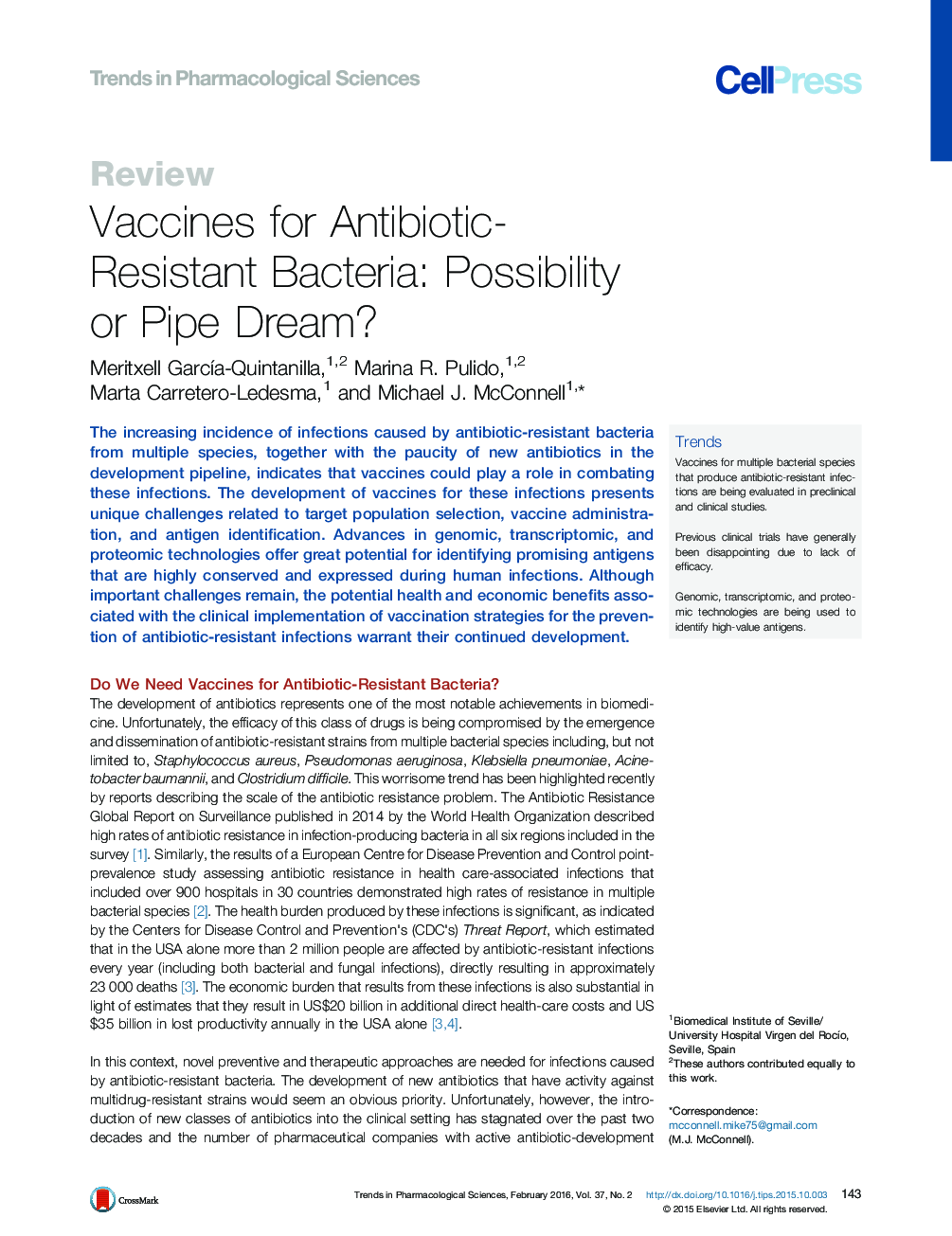| Article ID | Journal | Published Year | Pages | File Type |
|---|---|---|---|---|
| 2572411 | Trends in Pharmacological Sciences | 2016 | 10 Pages |
The increasing incidence of infections caused by antibiotic-resistant bacteria from multiple species, together with the paucity of new antibiotics in the development pipeline, indicates that vaccines could play a role in combating these infections. The development of vaccines for these infections presents unique challenges related to target population selection, vaccine administration, and antigen identification. Advances in genomic, transcriptomic, and proteomic technologies offer great potential for identifying promising antigens that are highly conserved and expressed during human infections. Although important challenges remain, the potential health and economic benefits associated with the clinical implementation of vaccination strategies for the prevention of antibiotic-resistant infections warrant their continued development.
TrendsVaccines for multiple bacterial species that produce antibiotic-resistant infections are being evaluated in preclinical and clinical studies.Previous clinical trials have generally been disappointing due to lack of efficacy.Genomic, transcriptomic, and proteomic technologies are being used to identify high-value antigens.
